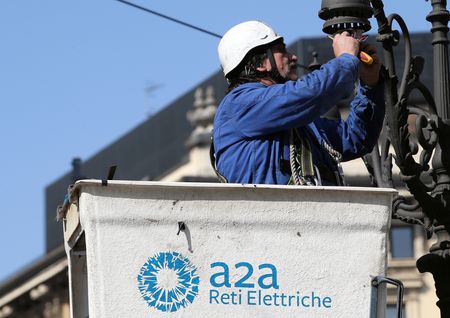By Jan Strupczewski
WASHINGTON (Reuters) -Italy has been outperforming on its deficit targets and is entering a virtuous cycle, but it still needs structural reforms for faster growth, the head of the International Monetary Fund’s European department Alfred Kammer said.
Italy cut its budget deficit to 3.4% of GDP last year, from 8.9% in 2021, and the gap is to shrink to 2.9% of GDP in 2026.
“What Italy has been doing is it actually has been overperforming on its targets with regard to the EU fiscal rules,” Kammer told Reuters.
“The positive thing about this overperformance, which they should keep up, is that you go into a virtuous cycle, because they lower your spreads, that lowers your interest rate, that gives impetus for private sector borrowing, for private sector investment, for growth, which generates tax revenue, so that actually helps you on the consolidation side,” he said.
The spread of Italian 10-year bonds over their German equivalent has fallen to around 80 basis points, from nearly 250 bps in mid-2022.
“Italian policymakers have very well understood that it is very costly to be in a situation where people are questioning your fiscal sustainability,” Kammer said. “I think various Italian governments have focused on making sure that this is not being questioned.”
But Italy still has low economic growth rates – around 0.7% annually since 2023 – and its public debt-to-GDP ratio has been inching up to around 137% despite the deficit reductions.
“It’s always difficult to get growth going under these circumstances and for Italy it means they need to do their homegrown structural reform work… which will provide dividends,” Kammer said.
Kammer said Italy had the EU Recovery Fund, of which Rome has been the biggest beneficiary, as an incentive for structural reforms, because disbursement of EU funds was linked to meeting reform milestones and targets.
But he said once the scheme ended in 2026, Italy should develop its own domestic structural reform program to continue to increase productivity and growth.
“That increases tax revenues, that lets markets relax, and that’s the space you want to be in,” Kammer said.
(Reporting by Jan Strupczewski; Editing by Alex Richardson)











